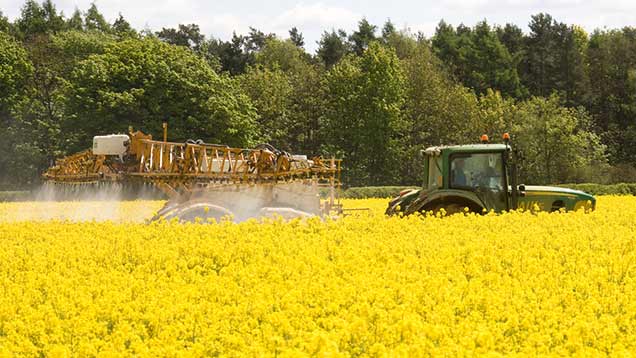Neonicotinoids used as foliar sprays harmful to bees, says EU watchdog
 ©Tim Scrivener
©Tim Scrivener Neonicotinoid pesticides applied as foliar sprays pose a risk to bees of all kinds, a new study has found.
Three pesticides currently banned in Europe pose a “high risk” to bee populations, according to new research from the European Food Safety Authority (EFSA).
But farm leaders and manufacturers insist that when the pesticides – imidacloprid and clothianidin (produced by Bayer CropScience) and thiamethoxam (produced by Syngenta) – are used as “targeted” seed coatings on oilseed rape they are safe.
See also: Neonicotinoid ban cost farmers millions
Defra is currently facing a legal challenge from environmental group Friends of the Earth (FoE) after it granted farmers in four English counties emergency use of two of the chemicals on oilseed rape, following a request by the NFU.
EU food safety body EFSA, which provides independent scientific advice to the European Commission, said in a statement: “The authority has published assessments on the risks to bees from clothianidin, imidacloprid and thiamethoxam for all uses other than seed treatments and granules.
“In cases where the assessment could be completed, high risks were either identified or could not be excluded. In other cases the risk assessment could not be finalised due to data gaps.”
EFSA said the conclusions of its latest study were “in line with those reached two years ago” when it assessed the risks to bees from the three pesticides when used as seed treatments or granules.
The study prompted the European Commission to introduce a two-year ban on 1 December 2013 on the use of the three neonicotinoids on flowering crops considered attractive to bees, such as oilseed rape, sunflowers and barley.
The commission is reviewing the ban and it has asked for all parties to submit any new relevant scientific information by 30 September 2015.
Bayer said it would review the findings of the latest EFSA study, but maintained its neonicotinoid products were safe when used “responsibly and properly” in seed or soil treatments.
But Paul de Zylva, FoE senior nature campaigner, said the study underlined why neonics were restricted and why the green group had decided to challenge Defra’s decision to allow use of neonicotinoids in parts of England this autumn.

